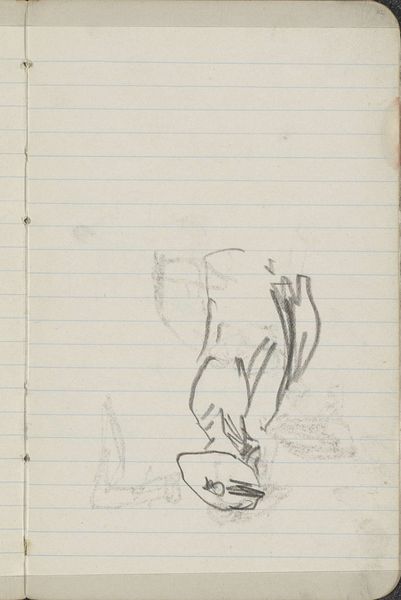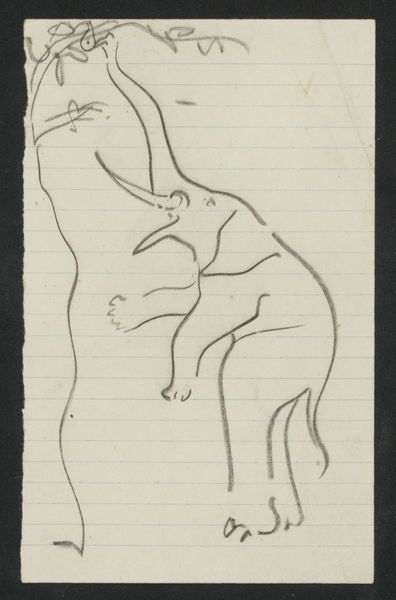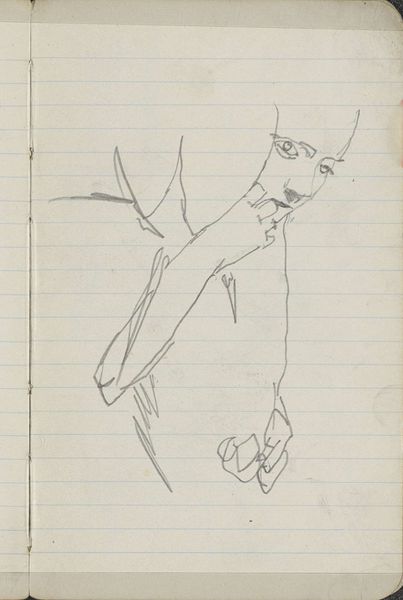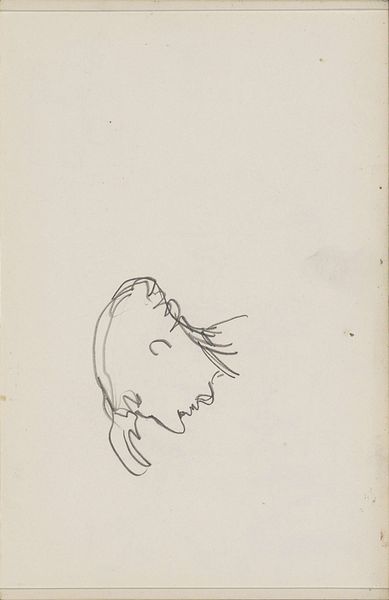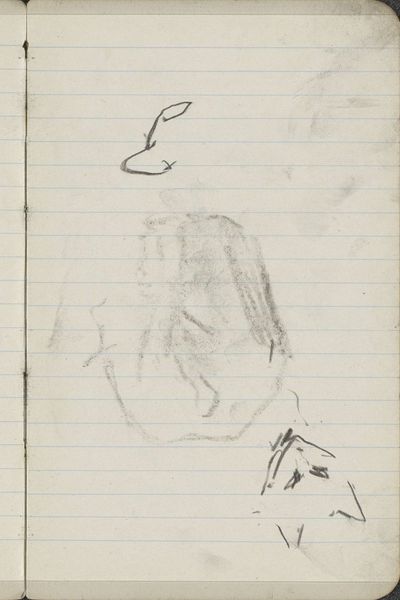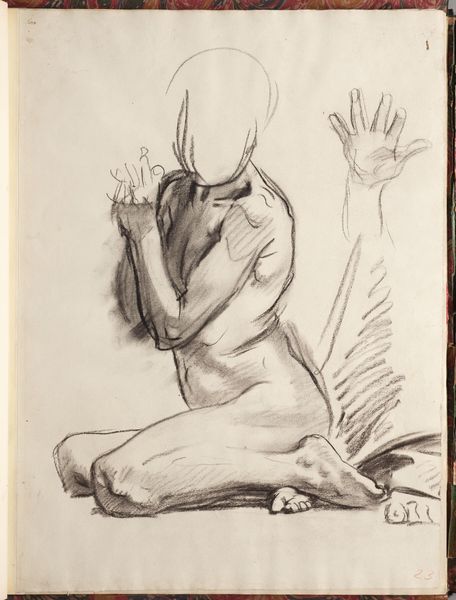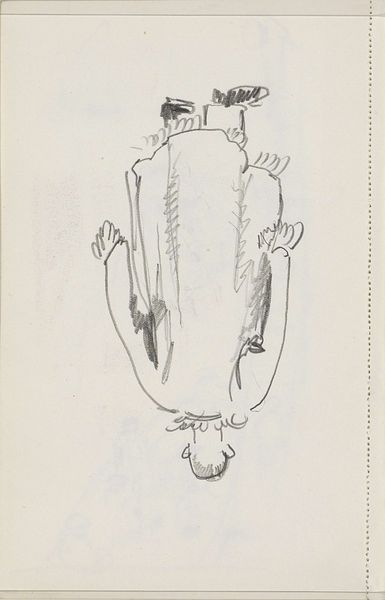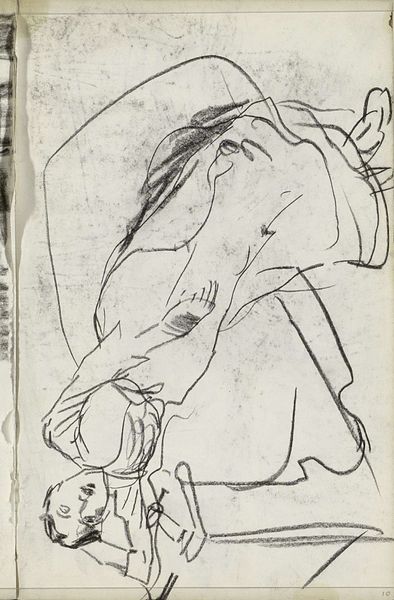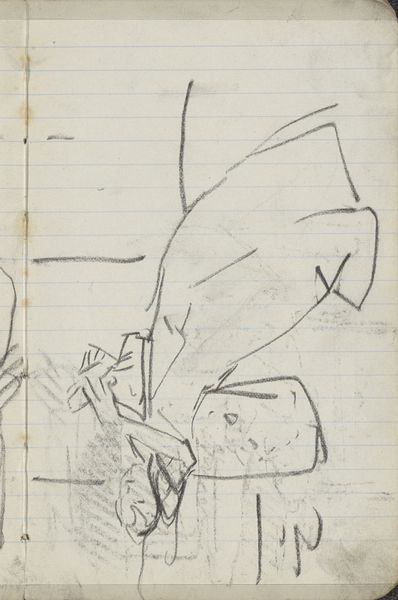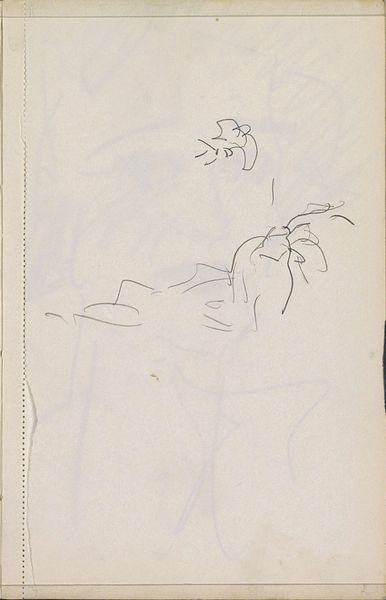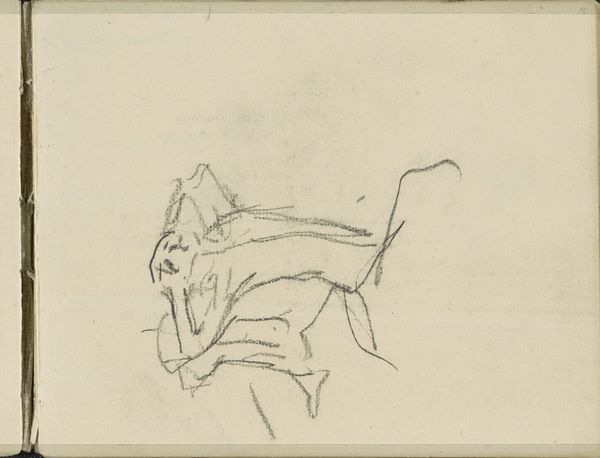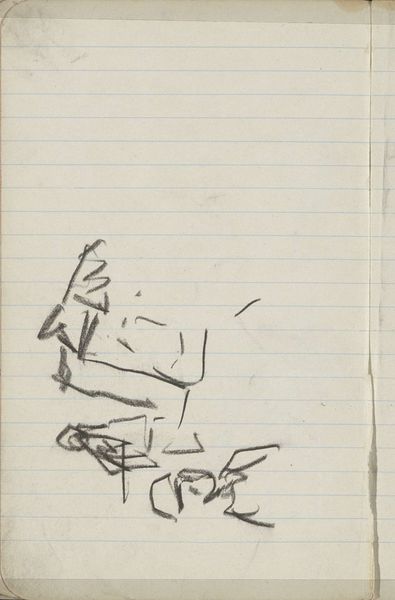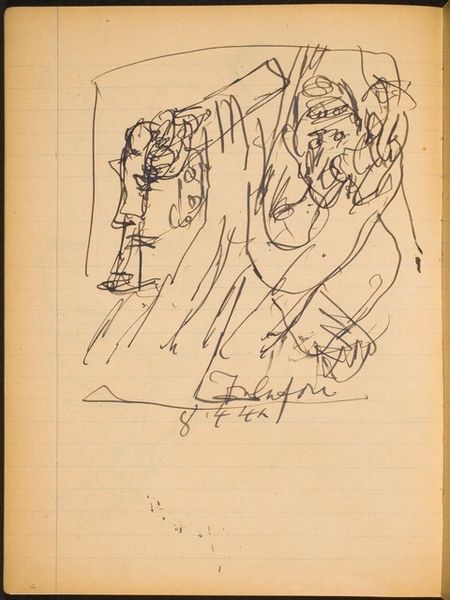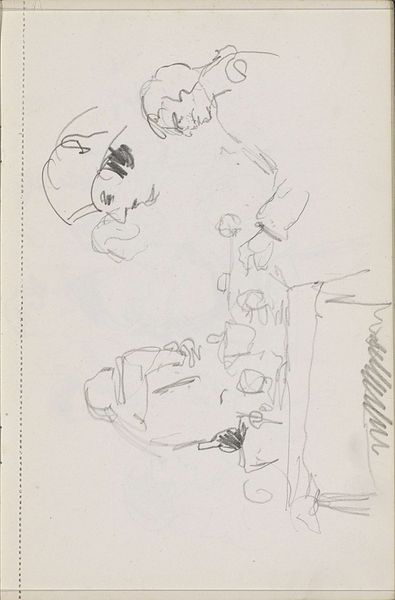
drawing, paper, pencil
#
portrait
#
drawing
#
pencil sketch
#
figuration
#
paper
#
pencil
#
line
Dimensions: height 334 mm, width 209 mm
Copyright: Rijks Museum: Open Domain
Curator: This pencil sketch, dating from 1876 to 1901, comes to us from Gerrit Willem Dijsselhof. Entitled "Kneeling Woman and Detail Studies of Hands", it resides here at the Rijksmuseum. Editor: There's something so intimate about a sketch like this. Raw, unfinished… Almost vulnerable. The way the woman is kneeling evokes a sense of supplication, maybe even defeat, contrasting against the study of open, reaching hands. Curator: Precisely. It's interesting to view this in light of the artistic currents swirling at the time. Dijsselhof was associated with a decorative aesthetic; this contrasts some depictions of the female form often associated with academic traditions of the time. Editor: Exactly. The repetition of the hands invites us to reflect on gesture and its symbolism. What are these hands offering? Begging for? To me, it feels layered, a representation of women placed into very precise social and economical restraints, even roles. Curator: The composition also disrupts the classical expectation of ideal beauty. Dijsselhof foregrounds the labor and humility suggested by the kneeling posture and repetitive action of the hands, perhaps speaking to the working class or an experience less focused upon. Editor: Yes, the lines are tentative. The piece’s unpolished nature encourages us to question the roles of women as depicted in art, but to also question and reflect on the roles imposed upon women by the establishment. How do we interpret that history and then apply it to today? Curator: Considering the time period when this work was made, and Dijsselhof's context as an artist connected to social circles interested in reform, it opens opportunities to examine themes of social change, as they're processed in art. Editor: Ultimately, the power in these simple strokes allows this artwork to be read through the political and historical lenses of its time, but also through the realities that have persisted. It demands engagement. Curator: It truly underscores the power of sketches, even unfinished ones, to convey profound social meaning and challenge the status quo. Editor: I'm left pondering how far we’ve come, and, of course, how much further we have to go, even today, by looking at Dijsselhof’s sketch.
Comments
No comments
Be the first to comment and join the conversation on the ultimate creative platform.
